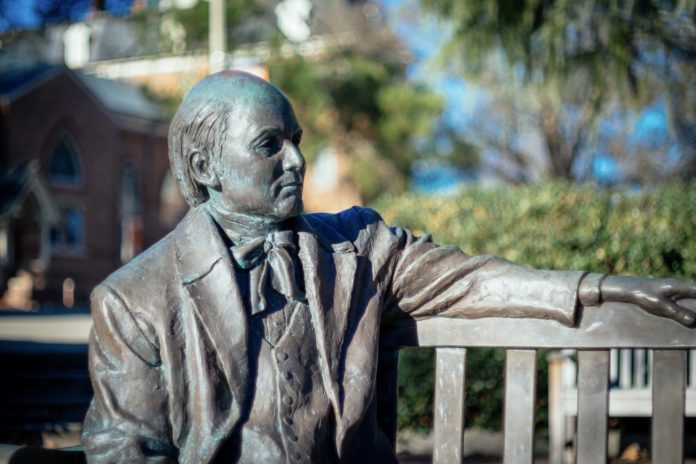Thomas B. Slater, professor of New Testament at the James and Carolyn McAfee School of Theology, is one of 25 contributors to True to Our Native Land: An African American New Testament Commentary, recently released by Augsburg Fortress Press. It is the first biblical commentary written entirely by African Americans. Brian Blount, Dearborn Professor of New Testament at Princeton Theological Seminary, was the general editor. The other editors were Cain Hope Felder, New Testament professor, Howard University; Clarice Martin, Picker Professor of Religion, Colgate University and Emerson Powery, associate professor of New Testament, Lee University. The title of the volume comes from a line in James Weldon Johnson’s “Lift Ev’ry Voice and Sing,” commonly referred to by Black Americans as their other national anthem.
The contributors come from across the theological spectrum: Baptist, Episcopalian, Methodist, Pentecostal and Presbyterian contributors. This is a unique feature of the commentary. Most commentaries or commentary series enlist persons from essentially the same theological or denominational perspective. For example, the Interpretation series has mostly Presbyterian writers; Sacra Pagina, Catholic; the International Critical Commentary, moderate British. Adding to the diversity, while most commentators are academicians, some work primarily in the parish. “Most if not all of us are involved in the life of a local church,” Slater adds.
The commentary has two major parts. The first part focuses on the role of the Bible in the African American community, while the second provides interpretations of each of the books of the New Testament.The first section has chapters on slavery, Africa and African imagery in Scripture, Paul, Womanist interpretations, preaching and art. An appendix has a list of African Americans with academic doctorates in New Testament and the schools from which they received their degrees.The target audience is pastors and laypersons in the Black Christian community who need a resource for sermon preparation, teaching Sunday School and leading Bible studies.
“The commentators show how aspects of African American culture can help to illuminate the biblical text,” Slater said. For example, Slater describes the Johannine movement as a sect. “For biblical scholars a sect is a group that emphasizes a particular doctrine or practice more than others in their religion. Often, this helps the group to survive during times of duress.” The love command in 1, 2, and 3 John is such a doctrine, Slater writes. While other Christians taught loving even those outside community (Luke 10:25-37), the Johannine community emphasized loving one another (John 13 and 1 John 4) Slater likens this to the custom among Black Americans in the South in the middle of the 20th century of speaking to one another in public. In both instances, the group gives to its members the positive reinforcement lacking in the broader society.
Slater, also pastor of St. Mary’s C. M. E. Church in Elberton, received his PhD in New Testament from King’s College, The University of London. He dedicated his commentary to the memories of the late Rev. L. T. Trammell, a former pastor and his “father-in-the-ministry,” and the late Rev. Dr. Peter Williams of Kurriemuir, Scotland, a dear friend and fellow King’s alum.
–30–










